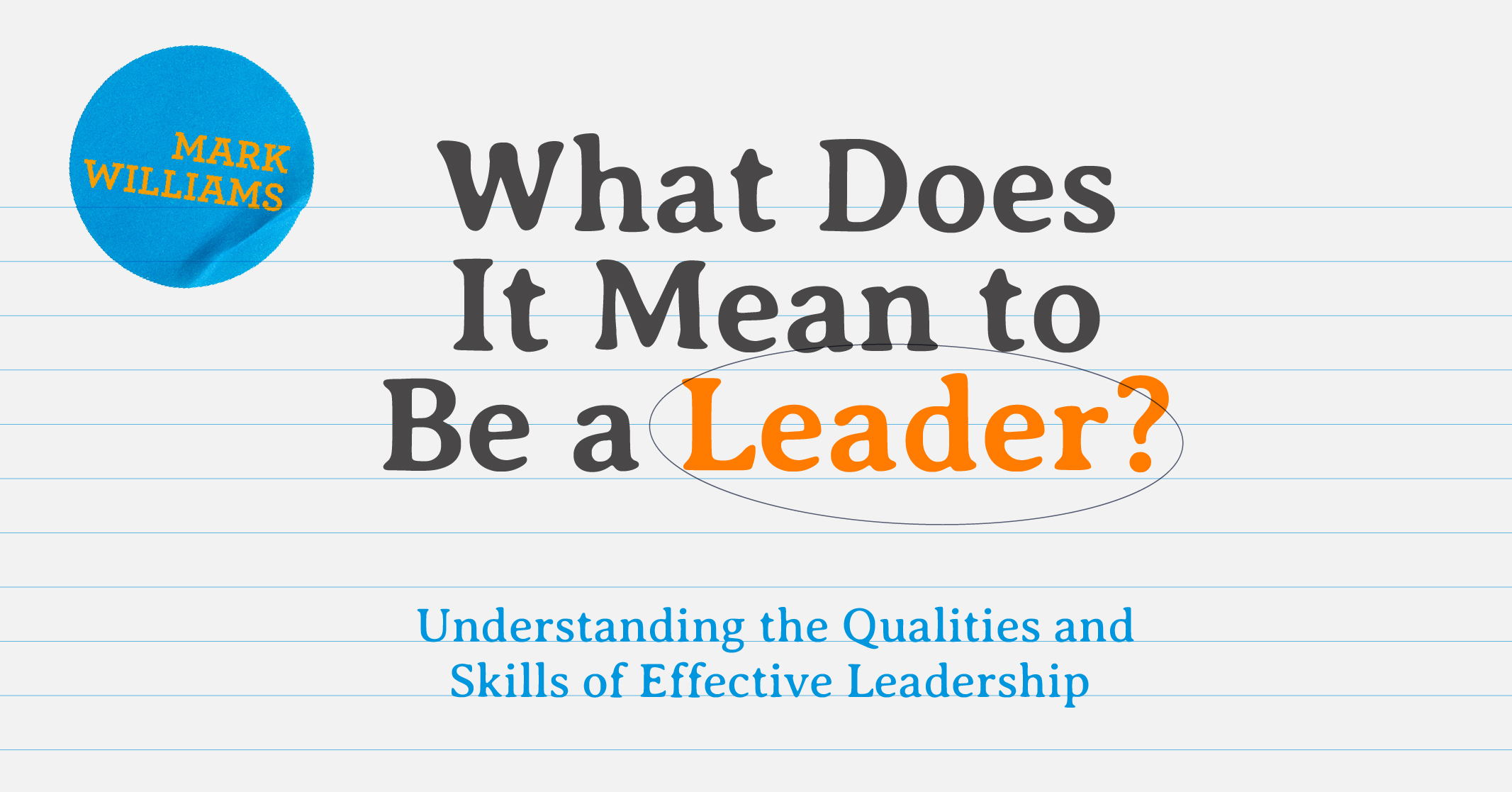Effective leadership is a crucial aspect of any organization. But what does it mean to be a leader? And in business, is there much of a difference between being a manager and being a leader?
Let’s explore the qualities and skills that are critical for effective leadership in business — and in life — as well as how managers can grow in their careers by moving into a more leadership-focused role in their team and organization.
What Does It Mean to Be a Leader?
At its core, leadership is about guiding and inspiring others toward a common goal or vision. Leaders are responsible for setting the tone for their team, establishing a positive and welcoming culture, and creating a workplace environment that enables their team or organization to achieve success.
Leadership involves a broad set of qualities and skills, including:
- Vision: Great leaders need to have a clear idea of what they want their team or organization to achieve. But even more importantly, they must be able to communicate that vision to their team in a way that draws others into the vision and inspires action.
- Integrity: Nobody wants to follow a leader who only talks the talk. It’s crucial for leaders to model the behavior and values that they want to see their team live out — truly leading the way.
- Collaboration: No man (or woman) is an island. Some people have a hard time delegating well or inviting others into a project. Achieving a visionary goal requires coordinating many people working together, who are given the latitude and autonomy to contribute according to their strengths in support the overall whole.
- Empowerment: Leaders empower their team members to take on greater responsibilities, knowing that part of their role as a leader is developing and building up their team members to advance in their own careers.
- Communication: Leaders must be able to communicate their vision and ideas effectively if they want to cultivate alignment toward their goals. Remember to practice the seven Cs of effective communication!
While these qualities and skills are essential for effective leadership, they are skills that can be developed over time. Identify which of these you don’t to be a strength, and make them a focus for your ongoing professional development.
How Can Managers Become Leaders?
If you are currently a manager looking to transition into a more leadership-focused role — or if you’re at an earlier stage of your career and want to learn how to best invest in your professional future — here are some steps you can take to start putting the skills above into action.
- Develop a clear vision: Take the time to step back and define your goals. Once you can articulate your vision, communicate it clearly to your team. This will help to inspire and motivate them to work toward a common purpose.
- Lead by example: Model the behavior and values that you want to see in your team, and demonstrate integrity and accountability in all your actions. Others are always watching how you approach your work and your co-workers — seek to be above reproach.
- Encourage collaboration: Foster a culture of inclusivity and teamwork by encouraging collaboration and recognizing the strengths and abilities of your team members.
- Empower others: Delegate tasks and decision-making authority to your team members. But don’t just hand over assignments — set them up for success by providing them with the support and resources they need to accomplish the tasks you set before them.
- Communicate effectively: Listen actively to your team members, provide feedback, and be open to new perspectives. (And even proactively invite feedback from others.) This will help build trust and foster a culture of open communication across your team and organization.
By focusing on these key areas, managers can develop the qualities and skills that are associated with effective leadership, and transition into a more leadership-focused role.
Go and Lead
Leadership is crucial in any role and at every organization — but effective leadership requires a range of qualities and skills. By intentionally cultivating these skills, managers can transition into a more leadership-focused role, guiding their team toward greater success at the same time.
If you’re looking for more insight into what it takes to be a truly great leader, let’s connect. I’m ready to help you in your journey to becoming an effective, impactful leader.

